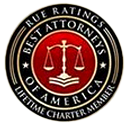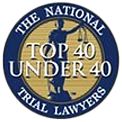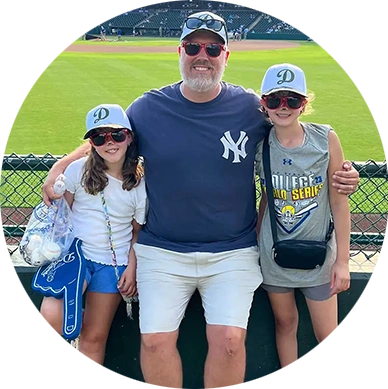Slip and fall accidents happen unexpectedly, leaving victims dealing with injuries, medical bills, and lost wages. In Philadelphia, these cases hinge on a crucial legal concept that many people overlook until they need it most: notice. The difference between actual and constructive notice can determine whether you receive fair compensation or walk away empty-handed.
At Gibbons & Crichton Personal Injury & Accident Lawyers, our experienced Philadelphia slip and fall lawyers see clients struggle with these concepts daily. This guide breaks down the fundamental differences between actual notice vs constructive notice in clear, straightforward terms so you can better protect your rights after an accident.
Property Owner Liability in Pennsylvania
Pennsylvania law requires property owners to maintain reasonably safe premises for visitors. However, they cannot be held liable for every accident that occurs. The law only holds them responsible when:
- They knew about the dangerous condition
- They should have known about the dangerous condition
- They created the dangerous condition themselves
The first two points directly relate to actual and constructive notice.
What Is Actual Notice?
Actual notice occurs when a property owner directly knows about a dangerous condition but fails to address it. This represents the clearest form of negligence in premises liability cases.
Think of the grocery store manager who receives reports about a spill in aisle three but does nothing to clean it up or warn customers. When someone slips and falls on that spill, the store cannot claim ignorance of the hazard because they had actual notice.
Examples of actual notice include:
- An employee spots a broken step but fails to report it
- A customer informs management about a leaking refrigerator creating a puddle
- Previous accident reports document the same hazardous condition
- Security camera footage shows staff aware of but ignoring a dangerous situation
Proving actual notice gives injured victims a strong advantage in slip and fall claims. The evidence directly shows the property owner knew about but neglected to fix a dangerous condition, establishing clear negligence.
What Is Constructive Notice?
Constructive notice presents a more subtle legal concept. This occurs when a property owner does not have direct knowledge of a specific hazard but reasonably should have known about it with proper inspection and maintenance procedures.
The law holds Philadelphia property owners to a standard of reasonable care. This means they cannot simply claim ignorance when hazards exist for extended periods that would have been discovered through normal maintenance routines.
For example, if a crack in a sidewalk develops gradually over months outside a Philadelphia business, the owner cannot claim they never noticed it. With reasonable inspection practices, they should have identified and repaired the hazard before someone got hurt.
Factors that establish constructive notice include:
- How long the dangerous condition existed
- The visibility of the hazard
- Whether regular inspection procedures would have revealed the problem
- Industry standards for maintenance and inspection
- The property’s location and traffic patterns
What Is the Difference Between Actual and Constructive Notice?
The main differences between these notice types affect how your slip and fall case proceeds:
Evidence Requirements
- Actual notice requires direct evidence showing the owner knew about the specific hazard.
- Constructive notice relies on circumstantial evidence showing the condition existed long enough that the owner should have discovered it.
Burden of Proof
- Actual notice cases often have clearer evidence, like incident reports or witness testimony
- Constructive notice cases typically require expert testimony about industry standards and reasonable inspection protocols
Legal Strategy
- Actual notice cases focus on proving the owner’s knowledge and inaction
- Constructive notice cases focus on proving the duration of the hazard and inspection failures
Why Notice Matters in Philadelphia Slip and Fall Claims
Pennsylvania courts scrutinize the notice element in premises liability cases. Many valid injury claims fail solely because victims cannot establish that property owners had either actual or constructive notice of dangerous conditions.
Philadelphia presents unique challenges in these cases. With harsh winters creating frequent freeze-thaw conditions, heavy pedestrian traffic in commercial areas, and aging infrastructure throughout historic neighborhoods, property owners face ongoing maintenance demands.
Local regulations also impact notice requirements. Philadelphia municipal codes establish specific maintenance obligations for commercial properties, sidewalks, and residential buildings. Violations of these codes can help establish constructive notice in your case.
Defending Against Notice Arguments
Property owners typically defend against slip and fall claims with these common counter-arguments:
- The dangerous condition formed too recently for discovery (attacking constructive notice)
- They had no way of knowing about the hazard (denying actual notice)
- They had reasonable inspection procedures in place
- The hazard was open and obvious to anyone paying attention
Your Philadelphia personal injury attorney must anticipate and counter these defenses with evidence that establishes either form of notice.
How Our Philadelphia Personal Injury Attorneys Prove Notice
At Gibbons & Crichton, we implement specific strategies to establish notice in slip and fall cases:
- Gathering surveillance footage: Security cameras often capture when hazards first appeared and whether staff acknowledged them.
- Interviewing witnesses: Other customers or employees may have observed the dangerous condition before your accident.
- Analyzing weather records: For outdoor falls, we document weather patterns to show how long ice or snow existed before your injury.
- Reviewing maintenance records: Inspection logs often reveal neglected areas or insufficient maintenance practices.
- Consulting industry experts: We work with safety specialists who testify about reasonable inspection standards for similar properties.
Taking Action After a Philadelphia Slip and Fall
If you experience a slip and fall accident in Philadelphia, taking these immediate steps helps preserve notice evidence:
- Document the exact condition that caused your fall through photos
- Note how long the hazard appeared to have existed
- Report the incident immediately to property management
- Collect contact information from witnesses
- Seek prompt medical attention for your injuries
- Contact an experienced Philadelphia slip and fall attorney
The sooner you engage legal help, the better the chance of preserving crucial evidence about notice.
The Bottom Line on Notice in Slip and Fall Claims
If you have questions about a potential slip and fall case or need help determining if notice existed in your situation, contact our experienced Philadelphia premises liability attorneys at Gibbons & Crichton. We provide complimentary case evaluations to help you understand your legal options and the strength of your claim.














